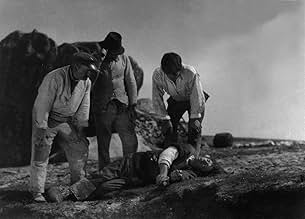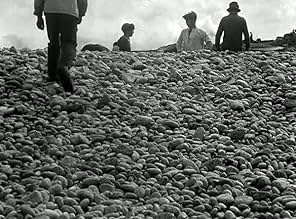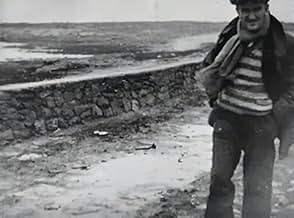Lately this Germanic Count has been exposing in a public and notorious manner his preference for the more avant-garde silent movements; a daring, experimental and innovative era where the silent pioneers showed how to play with the cinematograph's enormous possibilities.
One of the most outstanding directors of that movement (and French by the way), was Herr Jean Epstein, even though in this occasion, the film that this Count is willing to talk about it is not included inside Epstein's avant-garde and fruitful period. Though it is far from a classic film, "Finis Terrae" demonstrates that Epstein's innovative character always showed in his films, especially during his silent phase.
In "Finis Terrae", Herr Epstein forsakes the avant-garde and chooses a more realistic cinema. The film is a kind of documentary set in French Brittany and part of a trilogy (completed by "Mor Vran" (1931) and "L'Or Der Mers" (1932)) dedicated to that French coastal region for which the director had a special predilection.
Though the film belongs in the documentary genre, Herr Epstein is more interested in the experimentation he can do. He dramatizes the story in a way consistent with his artistic purposes but does not forget to reflect in it the area, the people and customs with their special characteristics. However, the movie lacks the evident ethnologic importance of Herr Flaherty or Herr Grierson's films.
"Finis Terrae" is more lyrical, a visual poem to experiment with. The simple story: four algae collectors are trapped on an island and at a later time are rescued by their neighbors. This very interesting film has a rhythm in its narrative and it's lit in harsh natural way which perfectly reflects the artistic intentions of the French director.
And now, if you'll allow me, I must temporarily take my leave because this Germanic Count has to clarify an existential doubt: To whit, which one is the Great or Small Britain?




















